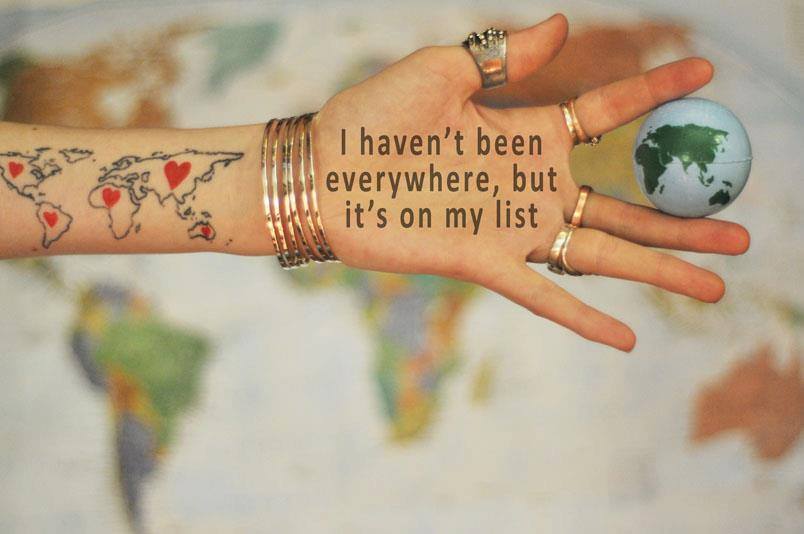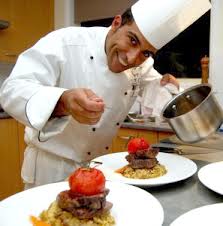Get That Travelogue Right!
Travelling through Aurangabad I met a person who renewed my hope in pursuing my dream of being a travel journalist. Listening to his tales and stories of faraway lands, of remarkable people he came across, of his experiences reminded me of the passion I once felt for travelling I had somehow that had just faded into the background buried beneath the trivialities of daily life. Hence, here I am writing away about travelling journalism to help all of those budding travellers who have a flair for writing! Travel journalism is a fun, exciting, lucrative and-if you find your way to the top- most rewarding choice of career.
In essence, the job profile includes travelling to different, exotic destinations, learning about that place, tasting delicious food, sipping cocktails, meeting new locals and documenting your every moment through writing. Moreover, the cherry on top is that you get paid for all this! Sounds like a dream, right?.
Earlier, many travellers documented their experiences in books that came to be known as guidebooks. However, today with high speed internet available travelogues are going techno. The first step in being a travel journalist is that you should have a blog. Blogging in ways define your writing helps you find your voice and portray the unique angle with which you view the world. Specialized blogs, which depict either the cuisine or the festival of the travelled place, will only highlight your talent. Blogs certainly go a long way in getting those paid writing jobs you hope to aim for. The next step is to have fluent English. If your writing is up to the mark big companies will definitely follow you.
The most important part of the job profile is selling your work. Marketing skills play a huge role in travel journalism. You should be confident while displaying your writing to publications and editors. Many people want to read about various destinations before they travel and with a world so big, you only help them in making their choice. Before you publish any writing make sure that you get your facts correct and the best way to ensure this is to talk with local people then to depend on internet. They know their home better than anyone else does! Bring out the journalist in you and dig in for inside information and actualities. Expanding your photography skills will certainly go a long way. Many times people may fail to visualize a destination or locale as you describe them and photos benefit a great deal. In addition, many times travel journalism is a one-man show and capturing your experiences through a lens works well on your resume. Being a psychology student I know the immense significance of visual perception so, start investing in high quality, expensive camera! Your travelogue should give its readers something unique and unusual about that particular destination such as a famous restaurant for breakfast, a lighthouse tucked away from crowded beach, that shop where you find funky and reasonable souvenirs or even a spot to cherish as sun goes down. Everyone has their where-to-go and what-to-do list when it comes to big cities and popular tourist spots. However, when it comes to taking road less travelled they become hesitant. This is where you score big time. Travel to places people are unaware of, set your foot in those lands only locals know, take a detour before you reach your destination and you will be surprised to see many wonders that await you.
Be curious enough and explore that place to its maximum. Writing about this journey will give insight to other enthusiastic travellers. Tourism industry is experiencing many changes today. People are making their travel very specific and reason oriented. With people travelling for adventure, culinary experience, pilgrimage, health reasons, spirituality, heritage, sports, shopping or even following a music band tour the writing is being extensively personalized. The more you write about exclusive and exceptional places the more you are at advantage. A very important thing to remember here is that your readers have done their homework and already know much about their would-be travel destination. Hence, it is necessary to include what-not -to-do list in your writing as well. Giving tips and advices while on travel will make the reader’s job easier and less hectic. Remember, your travelogue is for the travellers first and then for your paycheck. However, do not overplay a destination; leave something for the travellers to explore. Lastly, follow the publication that inspires you to keep on travelling and writing! (For me it has to be Lonely Planet!).
Twitter provides an incredible platform to know other travel writers out there, magazines, newspapers and travel channels that will help you a great deal since they know more about this field than you do. Familiarizing with writing of other travel journalists can help you in identifying where you work is lacking. Though formal education plays a minimal role once you get on with travel writing, a postgraduate degree in journalism will ensure your access to this highly competitive field. As every coin has two sides, travel journalism has its shortcomings too. Hard work, low pay until you get tied to a big publication, a hectic schedule and travelling for months together can take a toll on your health as well as relations. Passion, determination and commitment are the only companions that can make your boat sail to the coast. A real gusto for travel and aptitude for linking words together is essentially all you need to become a travel journalist.





